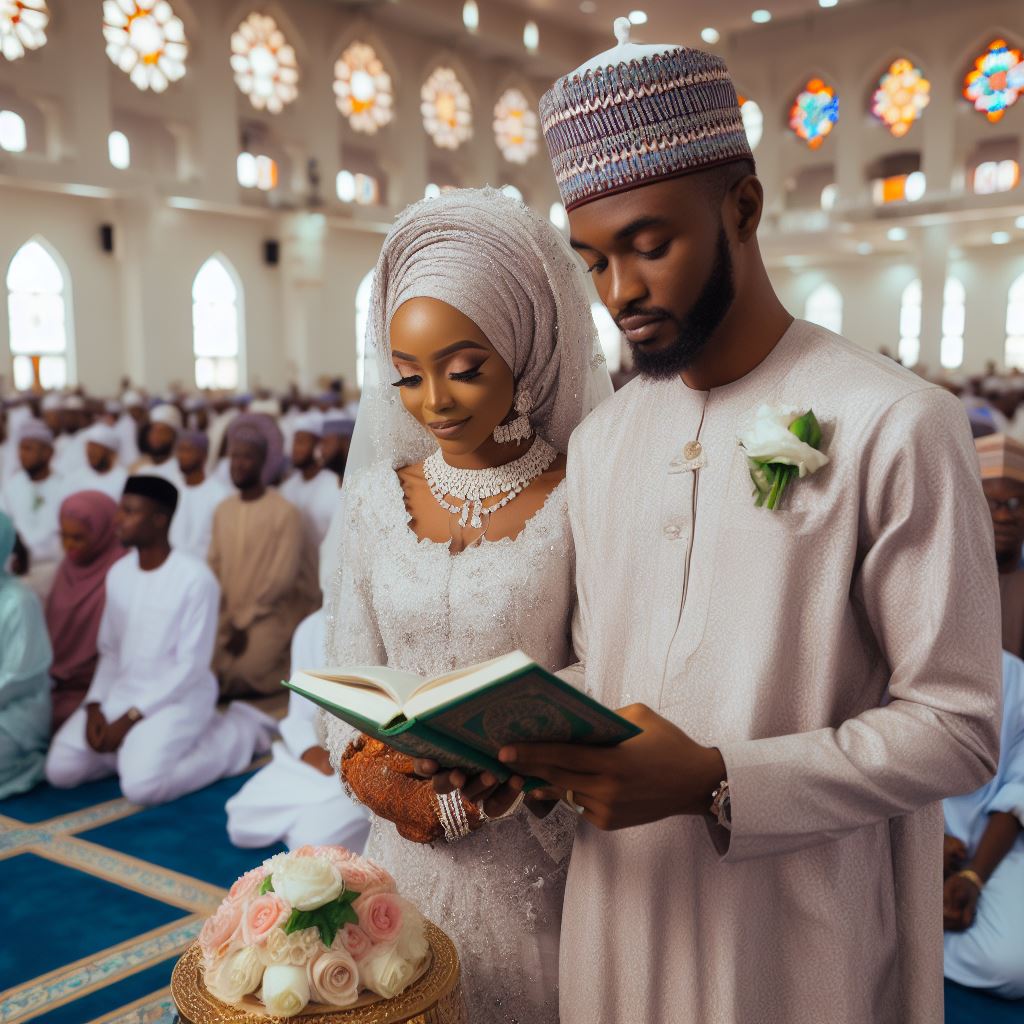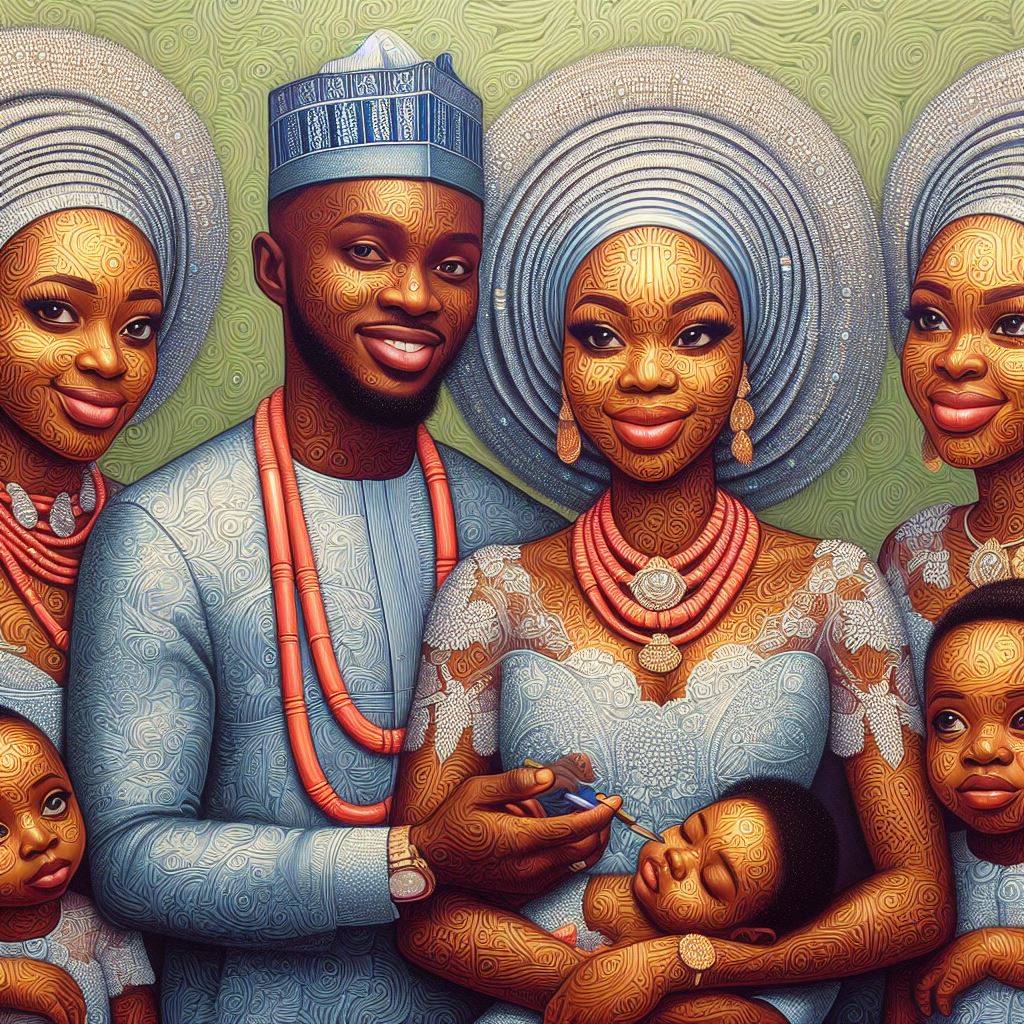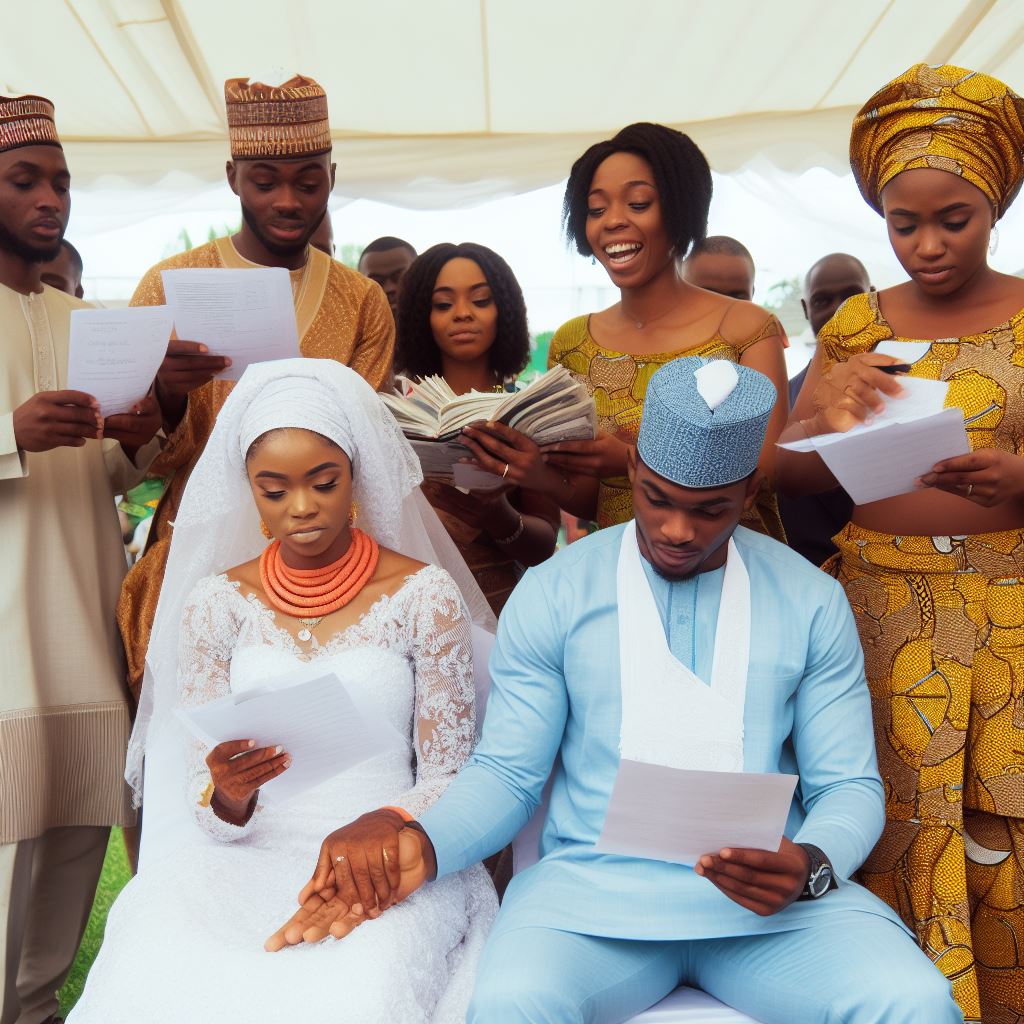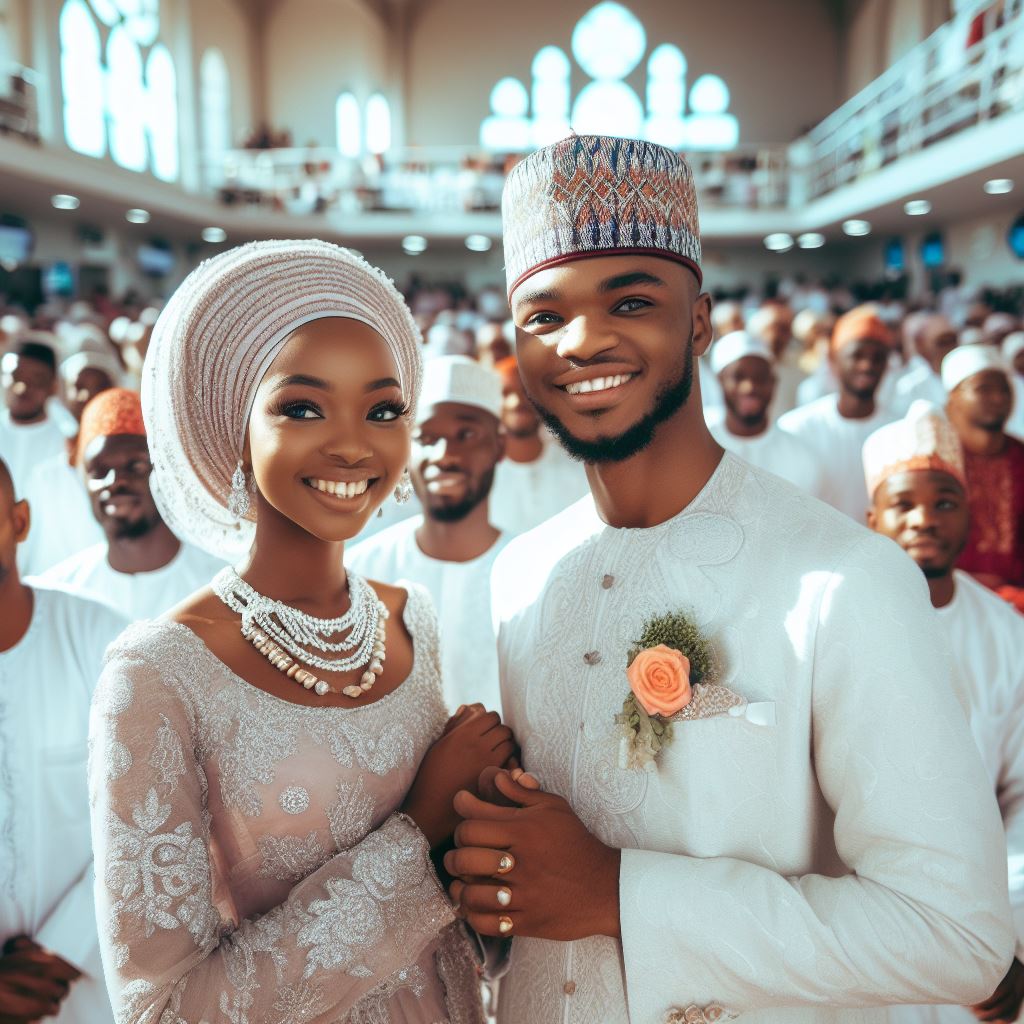Introduction
Marriage in Nigeria has deep cultural roots, shaping communities and traditions for centuries.
Historical Nigerian books on marriage offer invaluable insights into these intricate customs.
Overview of Marriage in Nigeria
Marriage, a cornerstone of Nigerian society, holds diverse regional and ethnic practices, showcasing the nation’s rich cultural tapestry.
Importance of Historical Nigerian Books on Marriage
- Preserving Traditions: These books safeguard age-old customs, preventing them from fading into obscurity.
- Cultural Understanding: They provide a lens into the diverse marital practices among ethnic groups.
- Social Significance: Marriage signifies lineage, heritage, and social standing, making historical texts indispensable.
Purpose of the Blog Post
This blog delves into the treasure trove of historical Nigerian books on marriage.
It illuminates their role in cultural preservation, fostering a profound understanding of Nigeria’s rich marital heritage.
Overview of Nigerian Authors and their Contributions
Prominent Nigerian authors who have written about marriage
- Chinua Achebe: Known as the father of modern African literature, Achebe explores marriage themes in his novels like “Things Fall Apart.”
- Chimamanda Ngozi Adichie: A contemporary Nigerian author, Adichie addresses marriage dynamics in her acclaimed novel “Americanah.”
- Buchi Emecheta: Emecheta’s writings often delve into the challenges faced by Nigerian women in marriages, as seen in “The Joys of Motherhood.”
Significance in Nigerian literature
- Chinua Achebe: Achebe’s portrayal of marriage showcases the cultural nuances and traditions in Nigeria, making him a significant literary figure.
- Chimamanda Ngozi Adichie: Adichie’s exploration of marriage connects with the experiences of young Nigerians, contributing to contemporary Nigerian literature.
- Buchi Emecheta: Emecheta’s focus on women’s perspectives within marriage challenges patriarchal norms and contributes to feminist literature in Nigeria.
Brief descriptions of their notable works on marriage
- “Things Fall Apart” by Chinua Achebe: This classic novel intertwines marriage and societal changes, depicting the clash between tradition and colonialism.
- “Americanah” by Chimamanda Ngozi Adichie: Adichie’s novel explores the complexities of interracial relationships and the impact on Nigerian immigrant experiences.
- “The Joys of Motherhood” by Buchi Emecheta: Emecheta’s book discusses the struggles of a Nigerian woman in marriage and motherhood, highlighting societal pressures.
In fact, Nigerian literature is rich with authors who have delved into the topic of marriage, offering unique perspectives on cultural traditions, societal changes, and women’s experiences.
Chinua Achebe, Chimamanda Ngozi Adichie, and Buchi Emecheta are prominent figures whose works have propelled Nigerian literature onto a global platform.
Their contributions have not only shaped the literary landscape but also shed light on the complexities of marriage in Nigerian society.
Read: Toast to Love: Nigerian Drinks to Pair with Anniversary Wishes
Pre-colonial Nigerian Books on Marriage
Importance and role of marriage in pre-colonial Nigeria
Marriage held immense significance in pre-colonial Nigerian societies, serving as a vital institution that not only ensured procreation but also facilitated social cohesion and economic stability.
It was deeply rooted in cultural practices and played a central role in shaping individual lives and the entire community.
Traditional Nigerian books focusing on marriage
1. Key themes and concepts explored in these books
Traditional Nigerian books on marriage examined various themes and concepts that shed light on the significance of this institution.
These literary works delved into the process of mate selection, the role of polygyny, gender dynamics, and the importance of family ties.
2. Examples of pre-colonial Nigerian books on marriage
“The Palm Wine Drinkard” by Amos Tutuola
This renowned book narrates the story of a man’s quest for a true and genuine wife.
It explores the challenges he encounters, including supernatural elements and cultural traditions, while searching for a suitable partner.
“The Joys of Motherhood” by Buchi Emecheta
In this novel, Emecheta portrays the life of Nnu Ego, a Nigerian woman who yearns for motherhood and the joys it brings.
The book delves into the institution of marriage, highlighting the pressures faced by women and the sacrifices they make for their families.
“The Wives’ Revolt” by Abubakar Gimba
Gimba’s novel explores the complexities of polygamous marriages in Nigerian society.
It reveals the dynamics between co-wives, their conflicts, and the challenges they face in maintaining harmonious relationships within the compound.
“Eze Goes to School” by Onuora Nzekwu
Although not solely focused on marriage, this Nigerian classic revolves around societal expectations and the impact they have on traditional marriages.
By depicting the struggles faced by a village boy transitioning into city life, Nzekwu highlights the importance of education in marriage dynamics.
“Without a Silver Spoon” by Eddie Iroh
Iroh’s novel delves into the role of marriage in addressing social class differences.
The story follows the protagonist, Mike, who belongs to a lower social stratum and faces numerous obstacles, including love and marriage, in his pursuit of a better life.
“Purple Hibiscus” by Chimamanda Ngozi Adichie
While primarily a coming-of-age story, Adichie’s novel explores the impact of domestic violence on the foundation of marriage.
It portrays the complex relationships between family members and the struggles faced by the main character, Kambili, in reconciling her father’s religious fanaticism with her own desires for independence.
In short, pre-colonial Nigerian books on marriage offer valuable insights into the importance and nuances of this institution in traditional society.
These literary works provide a rich tapestry of themes and concepts, showcasing the role of marriage in shaping individual lives and the wider community.
By examining the significance of marriage through different narratives, readers gain a deeper understanding of the complexities and dynamics inherent in this ancient Nigerian tradition.
Read: Key Bible Verses Celebrating the Sanctity of Marriage
Colonial Era Nigerian Books on Marriage
Nigerian books on marriage during the colonial period
1. Influence of Western ideas and ideologies on these writings
Nigerian books on marriage during the colonial period reflected the influence of Western ideas and ideologies.
2. Comparison between pre-colonial and colonial era books on marriage
A comparison between pre-colonial and colonial era books on marriage reveals significant changes in content and perspectives.
Impact of colonialism on Nigerian marital traditions
- Colonialism transformed Nigerian marital traditions by introducing Western ideologies, values, and legal systems.
- Pre-colonial Nigeria had diverse marital customs rooted in cultural, religious, and social beliefs.
- The imposition of Western values aimed to assimilate Nigerians into the colonial system.
- Western ideas introduced monogamy, gender roles, and new legal frameworks.
- Books written during the colonial period reflected these changes.
- Western influence promoted monogamy and discouraged traditional polygamous practices.
- Christian missionaries actively promoted their religious beliefs regarding marriage.
- Colonial authorities introduced legal regulations for marriage.
- Pre-colonial books focused on communal responsibilities and obligations tied to marriage.
- Colonial-era books emphasized personal happiness and fulfillment.
The colonial era profoundly reshaped Nigerian marital traditions through the influence of Western ideas, reflected in books, and shifting societal norms.
Read: Love and Commitment: The Core of Nigerian Marriages
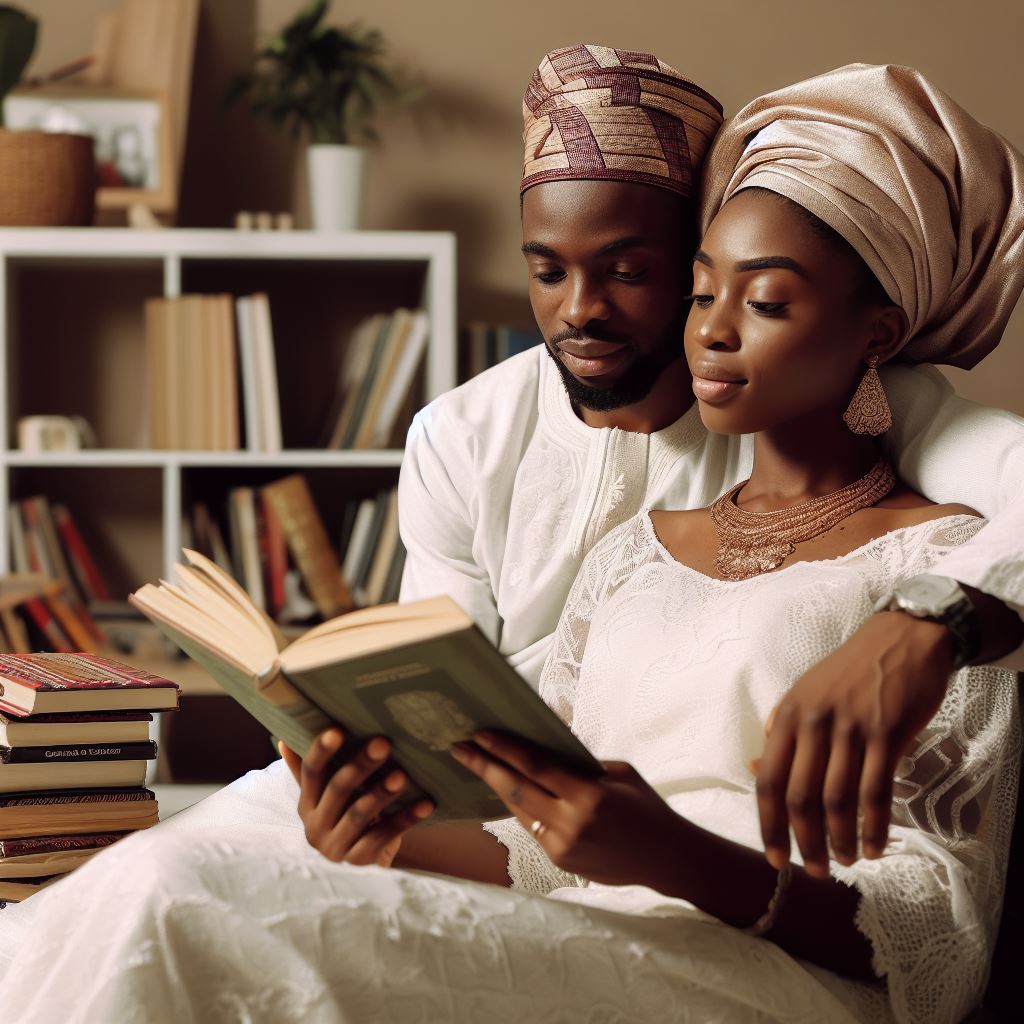
Modern Nigerian Books on Marriage
Examination of contemporary Nigerian literature on marriage
1. Themes and issues explored in modern Nigerian books on marriage
Modern Nigerian authors delve deep into the complexities and challenges of marriage.
They explore themes such as love, betrayal, infidelity, gender roles, and the impact of societal pressure on relationships.
These books offer a realistic and relatable portrayal of the institution.
2. Representation of changing societal norms and values
Contemporary Nigerian literature reflects the evolving nature of Nigerian society.
Authors actively address societal issues like gender inequality, polygamy, divorce, and the changing dynamics of power within marriages.
These books shed light on the struggles faced by individuals in navigating traditional and modern values.
Notable modern Nigerian authors and their works on marriage
1. Chimamanda Ngozi Adichie
Adichie’s renowned novel “Americanah” beautifully captures the complexities of love and marriage.
It explores the challenges faced by a Nigerian couple living in different countries and the impact of their choices on their relationship.
2. Helon Habila
Habila’s novel “Measuring Time” portrays the impact of polygamy on individuals and communities.
It delves into the lives of twin brothers and their diverging paths as they navigate the expectations of tradition.
3. Ayobami Adebayo
Adebayo’s novel “Stay with Me” delves into the pressures faced by a Nigerian couple struggling with infertility, infidelity, and the interference of family members.
It offers a deep exploration of love, sacrifice, and the complexities of marriage.
4. Abubakar Adam Ibrahim
Ibrahim’s novel “Season of Crimson Blossoms” challenges traditional notions of love and marriage by exploring a taboo relationship between an elderly widow and a young gang leader.
It addresses societal prejudices and the consequences of forbidden love.
5. Lola Shoneyin
Shoneyin’s novel “The Secret Lives of Baba Segi’s Wives” provides a satirical take on polygamy in Nigerian society.
It humorously explores the lives and secrets of a polygamous family, shedding light on the challenges and dynamics of multiple marriages.
In essence, modern Nigerian books on marriage offer an insightful and thought-provoking portrayal of this important institution.
Authors tackle various themes and issues, reflecting the changing values and norms of Nigerian society.
Through the works of notable authors like Chimamanda Ngozi Adichie, Helon Habila, Ayobami Adebayo, Abubakar Adam Ibrahim, and Lola Shoneyin, readers are introduced to diverse perspectives on marriage in Nigeria.
Read: Proverbs on Love: Unpacking Bible Verses about Marriage
Significance and Lessons from Historical Nigerian Books on Marriage
Importance of Studying Historical Nigerian Books on Marriage
- Preservation of Cultural Heritage: Historical Nigerian books on marriage provide valuable insights into the traditions and customs of the past.
- Understanding Cultural Context: Studying these books helps us grasp the historical factors that influenced marriage practices in Nigeria.
- Cultural Appreciation: By exploring these books, we can develop a deeper appreciation for the diverse cultural heritage of Nigeria.
- Identity Formation: Historical Nigerian books on marriage contribute to the formation of individual and communal identities.
Lessons Learned from Historical Nigerian Books on Marriage
- Role of Family: These books emphasize the central role of the family in Nigerian marital traditions.
- Importance of Dowry: Historical texts highlight the significance of dowry as a symbol of respect, honor, and commitment.
- Respect for Elders: Marriage books stress the importance of respecting and seeking guidance from elders in marital affairs.
- Gender Roles: These writings shed light on traditional gender roles assigned to men and women in Nigerian marriages.
- Unity and Community: Historical Nigerian books emphasize the importance of unity and community support in successful marriages.
- Communication and Conflict Resolution: Lessons from these books highlight the value of effective communication and conflict resolution skills in marriage.
- Adaptability: These books teach the importance of adaptability in evolving societal and cultural contexts.
- Endurance and Commitment: Historical Nigerian writings illustrate the importance of endurance and commitment in sustaining marriages.
Reflection on the Continued Relevance of These Writings
- Cultural Continuity: Despite societal changes, the lessons from historical Nigerian books on marriage remain relevant in preserving cultural continuity.
- Timeless Wisdom: These writings offer timeless wisdom that transcends generations and can still guide individuals in navigating marital challenges.
- Respect for Tradition: Reflecting upon these books reminds us of the significance of respecting and preserving traditional practices.
- Source of Inspiration: The stories and lessons from these books can inspire individuals in their own marital journeys.
- Societal Context: Analyzing historical Nigerian books on marriage helps us understand the influence of societal factors on marital concepts and practices.
In general, the significance of studying historical Nigerian books on marriage cannot be overstated.
These books provide valuable insight into cultural heritage, offer lessons applicable to today’s society, and remind us of the continued relevance of traditional wisdom.
By delving into these writings, we not only appreciate Nigeria’s rich cultural diversity but also gain wisdom and inspiration for nurturing healthy and successful marriages.
See Related Content: Nigeria’s Cross-Cultural Marriage Wishes & Their Beauty
Conclusion
Summarizing Key Points
- Explored historical Nigerian books on marriage, unveiling rich cultural insights.
- Discussed iconic works like Chinua Achebe’s “Marriage is a Private Affair.”
- Explored diverse marital customs through Wole Soyinka’s “Death and the King’s Horseman.”
- Highlighted the influence of marriage on societal structures in Buchi Emecheta’s “The Joys of Motherhood.”
- Emphasized the nuanced portrayals of love and union in Nigerian literature.
Reinforcing Importance
Preserving Nigerian literary heritage on marriage is vital for:
- Cultural Preservation: Safeguarding traditional practices and customs.
- Education: Providing insights into Nigeria’s diverse marital traditions.
- Identity: Connecting new generations to their cultural roots.
- Appreciation: Recognizing the depth and complexity of Nigerian literature.
- Global Understanding: Enhancing global awareness of Nigerian cultural nuances.
Appreciating these literary gems ensures our rich heritage continues to inspire and educate generations.

